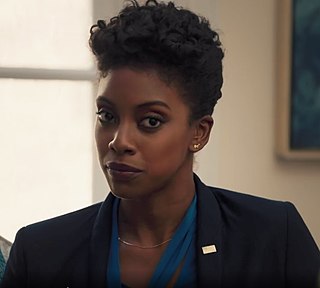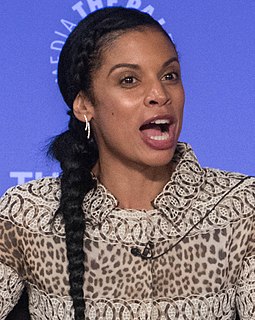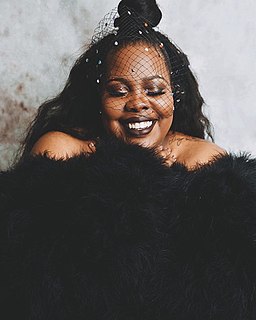A Quote by Clarice Taylor
I certainly know about the oppression and prejudices of being black and a woman and from the South.
Quote Topics
Related Quotes
It was a good script [Something New]. We have not seen an interracial issue dealt with from a black woman and white man's perspective in this way. And, usually, it's a black man, white woman. I loved the fact that it wasn't about the couple being against the world or the couple against the family. I loved the fact that it was her dealing with her own prejudices that came up, her own guilt, her own shame and embarrassment about what her peers thought.
I am not a Republican, nor a Democrat, nor an American, and got sense enough to know it. I am one of the 22 million black victims of the Democrats, and one of the 22 million black victims of the Republicans, and one of the 22 million black victims of Americanism... You and I have never seen democracy; all we've seen is hypocracy... If you go to jail, so what? If you're black, you were born in jail. If you're black, you were born in jail, in the North as well as the South. Stop talking about the South. Long as you south of the Canadian border, you're south.
Certainly I feel like I'm the tip of the arrow at times because certainly the national media wants to talk about the fact that I'm a black Republican and some people think of that as zany that a black person would be a conservative but to me what is zany is any person black, white, red, brown or yellow not being a conservative.
I felt like it was a courageous show [Black-ish] from the beginning. We are a black family - we're not a family that happens to be black. But the show is not even about us being black. The show is about us being a family. That is groundbreaking - on TV, the black characters either happen to be black or they're the "black character," where everything they say is about being black. I think that's the genius.
While I might not have a specific experience that is fully American, there is still a knowledge, something that I logically understand as a black woman and a black woman who is existing in America and a black woman who is in the diaspora that are just known quantities that I think anyone can relate to who is black.



































